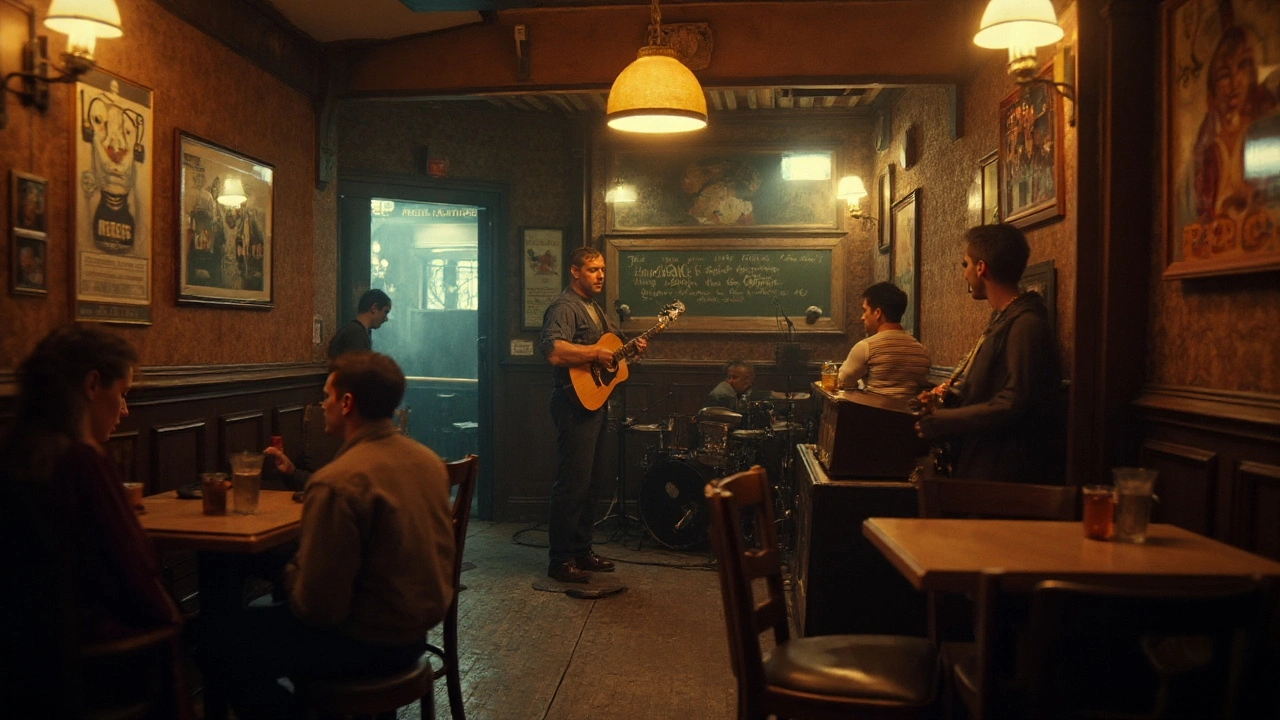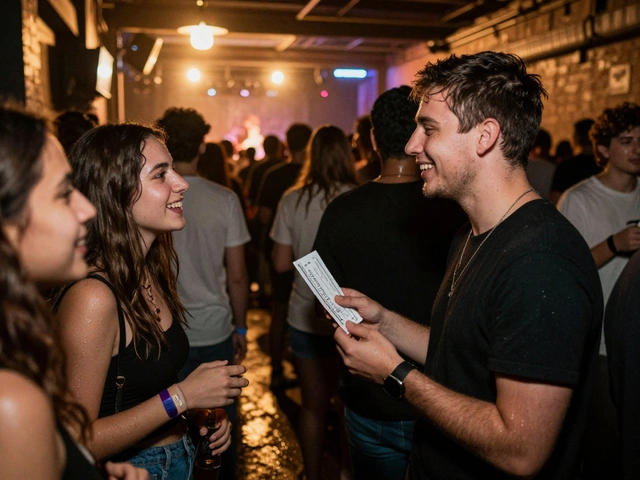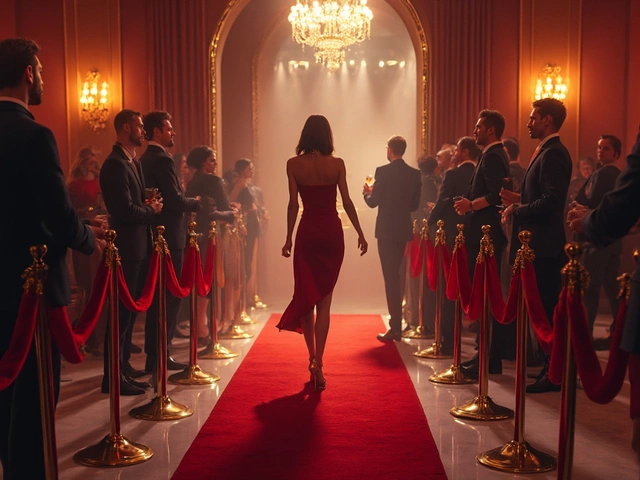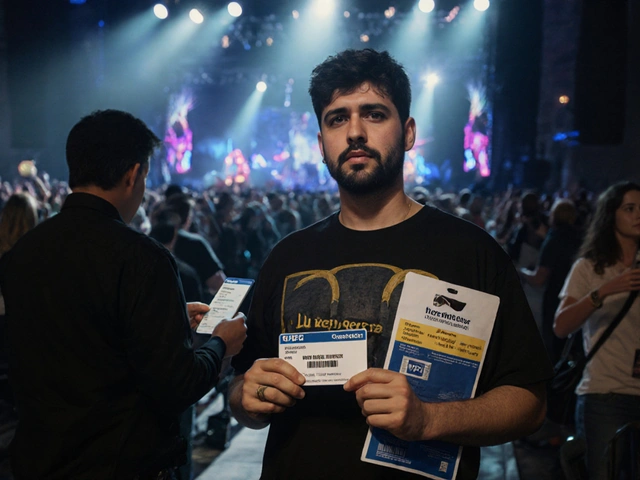You clicked this because you want the right word fast. Is it a concert, a gig, a show, a recital, or a festival? The short answer: it depends on size, genre, formality, and context. I’ll give you a clean, no-fuss way to choose the right term for posters, texts, press releases, and school assignments-so you never second-guess it again.
TL;DR: Quick answer and key takeaways
- “Concert” is the neutral, all-purpose term for a public music performance-works for orchestras, bands, choirs, and solo artists.
- “Gig” is casual and typical for bands, singer-songwriters, and DJs in smaller venues (bars, clubs, pubs).
- “Show” is informal and broad-used across genres and sizes, especially in live music promo (“sold-out show”).
- “Recital” is formal and usually features one performer or a small group (classical, jazz, dance studios, music schools).
- “Festival” is a multi-artist, often multi-day event, with stages, vendors, and a larger production scale.
One neat rule: If tickets are sold for a single artist or ensemble at a venue, “concert” or “show” fits. If it’s small and casual, “gig.” If it’s formal and centered on a performer’s program, “recital.” If it has many artists and a schedule, “festival.”
How to pick the right word (step-by-step)
Think of this like a tiny decision tree you can run in your head in five seconds. Use it for emails, posters, social posts, and event listings.
- Check the scale. One artist/band and a standard ticket? Say “concert” or “show.” Multiple artists over a programmed lineup? “Festival.”
- Check the vibe. Casual pub or club set? “Gig.” Black-tie hall or school program featuring a soloist? “Recital.”
- Check the genre. Classical: “concert” or “recital” (not “gig” unless you want ultra-casual). Rock/pop/indie: “concert,” “show,” or “gig.” Jazz: “concert,” “gig,” or “recital” (student/academic). EDM: “show,” “set,” or “festival.” Opera and ballet are “productions,” not concerts, unless it’s a “concert performance” without staging.
- Check the venue language. The venue or promoter often sets the tone. If their calendar says “show,” mirror it. If it’s a conservatory or university, “recital” may be standard.
- Check the audience expectation. Writing a press release? Lean formal: “concert.” Posting a quick Insta story? “Show tonight at 8.” Texting a friend? “Gig at San Fran Bath House” (yes, that’s how we say it in Aotearoa/NZ).
Shortcut: If you’re unsure and need one safe word for nearly any public music event, use music concert. It’s plain, clear, and search-friendly.
Examples in context (use these without overthinking)
Here are quick, real-life phrasing templates you can copy into texts, emails, posters, and press materials.
- Text a friend (casual): “Want to hit the gig at Meow tonight?”
- Social post (promo): “Wellington! Our album-release show is this Friday at 8. Limited tickets.”
- Event listing (neutral): “Chamber Orchestra Concert - Saturday, Michael Fowler Centre.”
- Press release (formal): “The New Zealand Symphony Orchestra announces a concert featuring Mahler’s Fifth.”
- School/uni program: “Senior flute recital by Hana K.”
- Festival guide: “Saturday line-up at CubaDupa: street stages from noon, headliners from 7 pm.”
- Classical crossover: “Opera in Concert: Verdi arias without staging.”
- Jazz club: “Late-night gig: Trio set at 10:30.”
- EDM: “DJ set at Club 121 - extended show ‘til late.”
- Tour language: “Final NZ show of the 2025 tour.”
Want genre-tuned wording? Use “recital” for student showcases, conservatory performances, solo classical/jazz programs. Use “show” when the performance includes visuals, staging, or a more theatrical presentation. Use “gig” when the room is small, the vibe is loose, and you’re talking directly to fans.

Quick reference: terms, meanings, and when to use them
This table gives you fast definitions, typical use, and region notes. It’s written with everyday usage in mind, including how we speak in New Zealand.
| Term | What it usually means | Typical size | Formality | Common genres | Good example | Notes/region |
|---|---|---|---|---|---|---|
| Concert | A public music performance by an artist/ensemble | Small to large | Neutral to formal | Classical, rock, pop, jazz, choral | “Orchestra concert at the Town Hall.” | Safe, widely understood worldwide |
| Gig | Casual live performance, often in bars/clubs | Small | Informal | Indie, rock, singer-songwriter, jazz | “Friday night gig at the pub.” | Common in NZ/UK/US; very casual tone |
| Show | Broad term for a live performance | Small to arena | Informal to neutral | Pop, rock, EDM, hip-hop, comedy | “Sold-out show tonight!” | Good for promos and social content |
| Recital | Program spotlighting a soloist/small group | Small to mid-size hall | Formal | Classical, jazz (academic), dance schools | “Senior piano recital.” | Favoured in education and classical circles |
| Festival | Multi-artist event, often multi-day | Large | Neutral | All genres | “Laneway Festival, two days.” | Includes stages, vendors, schedules |
| Set | A continuous block of performance | Any | Neutral | DJ, jazz, bands | “45-minute set.” | Part of a concert or show |
| Residency | Repeated shows at one venue | Any | Neutral | Pop, theatre, jazz | “Monthly residency at Rogue & Vagabond.” | Useful for promo calendars |
| Tour stop/date | One show within a larger tour | Any | Neutral | All touring acts | “Auckland tour date 12 Oct.” | Use in listings and itineraries |
| Showcase | Industry-facing set to highlight acts | Small to mid | Neutral | Indie, label/industry events | “Label showcase at Wine Cellar.” | Audience may include media, A&R |
| Matinee | Daytime performance | Any | Neutral | Classical, theatre, family shows | “Sunday matinee at 2 pm.” | Just refers to time of day |
| Prom | UK: concert series (BBC Proms) | Large | Formal to festive | Classical | “The Proms season.” | Not US ‘prom’ dance |
| Opera/Ballet | Staged works, not concerts | Mid to large | Formal | Opera, ballet | “Opera production of Carmen.” | “In concert” means no staging |
Two finer points, in plain language:
- “Symphony” is a piece of music; the group is an “orchestra.” So it’s the “orchestra concert,” not a “symphony” (unless you mean they’re playing a symphony).
- “Philharmonic” and “Symphony” in names (e.g., Auckland Philharmonia) both mean “orchestra.” Use “orchestra,” “orchestral concert,” or the group’s official name.
Why this matters: in posters and press, the term sets expectations. A “recital” signals a focused program and listening vibe. A “gig” suggests standing room and a bar. A “festival” tells people to plan for a schedule, weather, and crowds.
Mini-FAQ and next steps (answers, checklists, and pro tips)
Here are the questions people usually ask right after “What is a music concert called?” plus simple actions you can take.
- Is a concert the same as a show? Close enough in everyday use. “Concert” reads slightly more formal; “show” reads more promo-friendly. You won’t upset anyone with either.
- Is a recital a concert? A recital is a type of concert, but with a focus on a soloist or small group and a set program (often classical or academic).
- Is opera a concert? Opera is a staged work. If performed without sets or staging, it’s an “opera in concert.”
- What about DJ nights? Use “DJ set,” “show,” or if it’s a multi-artist billed event, “festival.”
- What’s a “set” vs “setlist”? A set is the block of performance time. A setlist is the list of songs performed.
- What’s a “matinee”? A daytime performance, usually around 2 pm. It’s about the time, not the genre.
- What’s a “house concert”? A private or semi-private concert hosted in a home. Small, intimate, usually donation-based.
- “Proms” like in the UK? That’s a classical concert series, especially the BBC Proms. Not a school dance.
- Does country/region change the term? Slightly. In NZ/UK, “gig” is very common for casual shows. In the US, “show” is heavy in promo. “Concert” works everywhere.
Quick checklists you can screenshot:
- Poster/website checklist: Artist name(s), term (concert/show/gig/recital), date/time, venue, support acts, age restriction, ticket link, access info.
- Press release checklist: Formal term (“concert”), program or set highlights, quotes, who/what/when/where/why, media contact, high-res images.
- Social post checklist: Hook line, term (“show”/“gig”), exact time, ticket status (on sale, low tix, sold out), CTA, tag the venue.
Heuristics and pitfalls to avoid:
- If there’s a conductor or formal program, “concert” beats “gig.”
- If it’s a student or solo-focused program, “recital” fits best.
- Don’t call a festival a concert-fans will expect a bigger experience.
- For electronic nights, “DJ set” is clearer than “concert.”
- Use the venue’s tone; match the words on their calendar.
Next steps based on who you are:
- Fan texting friends: Use “gig” or “show.” Clear and friendly.
- Student writing an assignment: Use “concert” or “recital” depending on the program; name the ensemble or soloist.
- Artist posting a flyer: If it’s small/club: “gig” or “show.” If it’s a theatre/hall: “concert.” Add support acts and start times.
- Communications/PR: Default to “concert,” specify type (“benefit concert,” “orchestral concert,” “album-release show”). Keep it consistent across channels.
How to apply this in the wild (NZ-focused tips you can use today)
In New Zealand, we mix British and American usage. You’ll hear “gig” a lot for pub and club nights, “show” for tour dates, and “concert” for classical, choral, and theatre venues. Here’s how to sound native and clear:
- For city listings: “Wellington gig guide: Friday shows at San Fran, Meow, and Valhalla.”
- For classical: “Choral concert, St Paul’s Cathedral-Brahms Requiem.”
- For schools/unis: “End-of-year violin recital: Studio Theatre.”
- For multi-artist days: “CubaDupa festival map and stage times.”
If you’re writing for people traveling to Aotearoa, use the clearer term first-“concert”-and the casual term second if needed: “album-release concert (club show).”
Useful formatting for clarity:
- Include the headliner and the support: “Headliner + support from [names].”
- State whether it’s seated or standing. People plan shoes and jackets around this.
- Add duration or “two sets with interval.” It nudges arrivals to be on time.
- If it’s free or donation-based (house concert, community show), say it up front.
If you’re in doubt, read the poster out loud. If it sounds like a mouthful, simplify the term and keep the essential details. Clear beats clever.
Why language choice can affect attendance-yes, really:
- “Recital” signals quiet listening and can scare off casual fans who wanted a beer-and-chat vibe.
- “Gig” invites fans who like close-up energy but may put off those dressing for a formal night.
- “Festival” sets day-planning expectations (sunblock, water, shoes, transport). Wrong word = wrong prep.
Small change, big impact. Choose the word that matches the room and the audience you want.
Evidence you can trust without the jargon:
- Oxford English Dictionary defines “concert” as a public musical performance and “recital” as a performance by a soloist or small group-this is why those two words carry different expectations.
- BBC usage (“The Proms”) shows “prom” as a concert series in the UK context.
- Conservatory and university programs worldwide label student-led, solo-focused programs as “recitals.”
One last nudge before you close the tab:
- If it’s formal, seated, or classical: “concert” or “recital.”
- If it’s casual, small, or club: “gig” or “show.”
- If it’s multi-artist and scheduled: “festival.”
Pick one, commit, and keep it the same in your event title, caption, and ticket page. Consistency sells confidence-and tickets.





